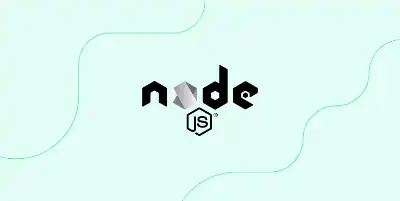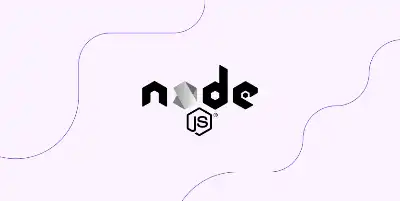Docs Home → Develop Applications → MongoDB Drivers → Node.js Driver
MongoDB Node Driver
Introduction
Welcome to the documentation site for the official MongoDB Node.js driver. You can add the driver to your application to work with MongoDB in JavaScript or TypeScript. For more information about downloading and installing the Node.js driver, see Download and Install in the Quick Start guide.
You can connect using the Node.js driver for deployments hosted in the following environments:
MongoDB Atlas: The fully managed service for MongoDB deployments in the cloud
MongoDB Enterprise: The subscription-based, self-managed version of MongoDB
MongoDB Community: The source-available, free-to-use, and self-managed version of MongoDB
Quick Start
Learn how to establish a connection to MongoDB Atlas and begin working with data in the step-by-step Quick Start.
Quick Reference
See driver syntax examples for common MongoDB commands in the Quick Reference section.
What's New
For a list of new features and changes in each version, see the What's New section.
Usage Examples
For fully runnable code snippets and explanations for common methods, see the Usage Examples section.
Fundamentals
Learn how to perform the following tasks using the Node.js driver in the Fundamentals section:
Aggregation Tutorials
For step-by-step explanations of common aggregation tasks, see the Aggregation Tutorials section.
API
For detailed information about classes and methods in the MongoDB Node.js driver, see the MongoDB Node.js driver API documentation.
FAQ
For answers to commonly asked questions about the MongoDB Node.js Driver, see the Frequently Asked Questions (FAQ) section.
Connection Troubleshooting
For solutions to issues you might encounter when using the driver to connect to a MongoDB deployment, see the Connection Troubleshooting section.
Issues & Help
Learn how to report bugs, contribute to the driver, and to find help in the Issues & Help section.
Compatibility
For the compatibility tables that show the recommended Node.js driver version for each MongoDB Server version, see the Compatibility section.
Upgrade Driver Versions
Learn what changes you must make to your application to upgrade driver versions in the Upgrade Driver Versions section.
Related Tools and Libraries
Object Document Mappers
MongoDB and our partners provide several object-document mappers (ODMs) for Node.js that let developers work with MongoDB data as objects. One popular ODM is Mongoose, which helps enforce a semi-rigid schema at the application level and provides features to assist with data modeling and manipulation. Prisma, another ODM, helps ensure data consistency by offering a type-safe database client and an intuitive schema.
For more information about using ODMs with MongoDB, see the following resources:
Packages
You can install the following packages to expand the functionality of the Node.js driver:
Package | Description |
|---|---|
BSON serialization and deserialization library used by the official
MongoDB Node.js driver | |
C++ extension for Node.js that provides support for Kerberos authentication | |
Library for client-side encryption functionality | |
Legacy Node.js driver with optional callback support | |
Zstandard compression library for Node.js |
For information about each package's version compatibility, see the Component Support Matrix in the Node.js driver Github repository.
Learn
Visit the Developer Hub and MongoDB University to learn more about the Node.js driver.
Developer Hub
The Developer Hub provides tutorials and social engagement for developers.
To learn how to use MongoDB features with the Node.js driver, see the How To's and Articles page.
To ask questions and engage in discussions with fellow developers using the Node.js driver, see the Developer Community forums.
MongoDB University
MongoDB University provides free courses to teach everyone how to use MongoDB.
Take the Following Free Online Courses Taught by MongoDB Instructors
 | Learn the essentials of Node.js application development with MongoDB. |
 | MongoDB Node.js Developer Path Gain a comprehensive understanding of Node.js application development, complex operations, interactions with MongoDB Atlas datasets, and more. |